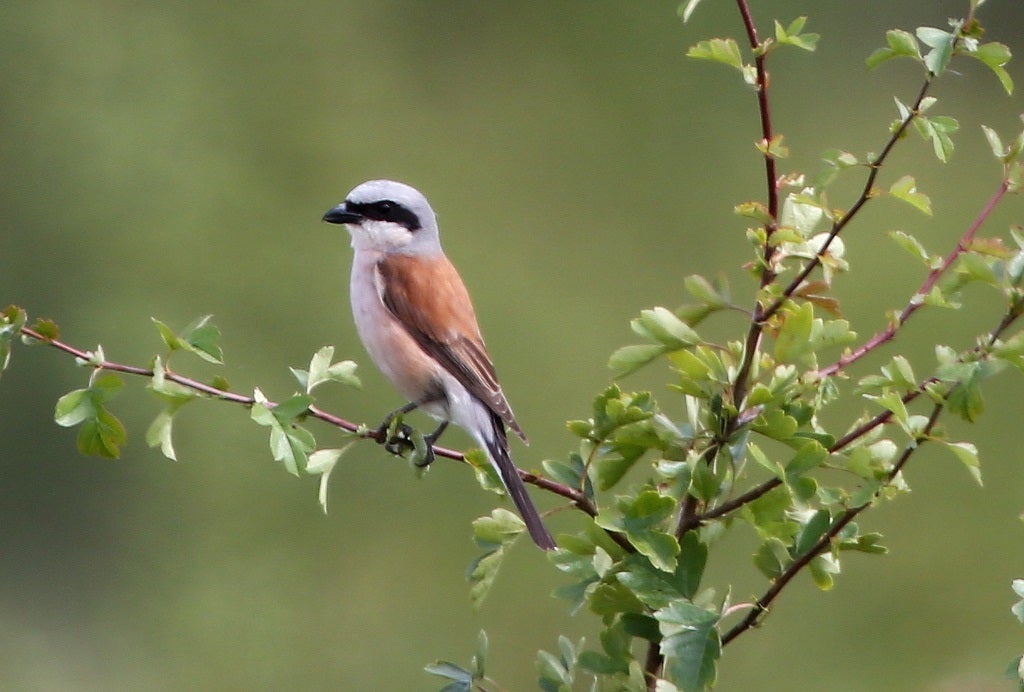The unexpected and cheering return of the red-backed shrike
It is a lovely mini-predator, known as the ‘butcher bird’, as it impales its prey on thorn bushes

The idea of a Lazarus species is a fascinating one. It refers to a creature which, like Lazarus in the New Testament at the hands of Jesus, returns to life; one which disappears and is believed extinct, but is found to be still among us.
Some examples are spectacular, such as the coelacanth, an ancient fish thought to have vanished more than 60 million years ago, which was rediscovered in a fisherman’s catch in South Africa in 1938. Others are much more modest in terms of length of disappearance, such as the Lord Howe Island stick insect which seemed extinct by 1920 at its islet home off Australia, but was rediscovered in 2001.
It is this latter category which concerns me, because here in Britain we have a creature we thought we had lost, which might yet turn out to be a Lazarus species of our own, and which may recover naturally. It is a lovely bird: the red-backed shrike.
Since the Second World War only two species of long-established and formerly common birds have become extinct in Britain, the red-backed shrike being one, and the other being the wryneck: both are fascinating and charismatic. The wryneck is a small brown woodpecker, so named because it can twist its head to an unusual extent; the shrike is a lovely mini-predator, like a tiny falcon, known as the “butcher bird”, because it impales its prey on thorn bushes in a sort of larder, for safe keeping.
Both are summer visitors, wintering in sub-Saharan Africa. In 1945 there were several hundred pairs of each still breeding in Britain, but in the 1950s and 60s they both underwent precipitate declines, perhaps because of the advent of intensive farming. By 1974 the wryneck had ceased to nest here; by 1989 so too had the shrike.
Yet in recent years the latter has made sporadic attempts to breed here again; and now it has been suggested that Lanius collurio might be on the verge of recolonising its British habitat. In an article in the current issue of British Birds entitled “Return of the butcher bird?” Mary Davies and Leigh Lock of the RSPB look at the possibilities for a Lazarus-like reappearance.
Their main hope is that the breeding attempts in recent times, while tiny in number, have grown continuous, and occur somewhere in most years, whether in the West Country, Wales or Scotland. In 2010, for example, in addition to a pair in northern Scotland, two pairs nested on Dartmoor, the first in England for nearly 20 years.
They are also encouraged by the fact that recently, a number of birds from Europe have begun colonising Britain, including the little bittern, the great white egret and the spoonbill, although these are all wetland species, and they warn: “No bird species associated with farmland or other open, dry habitats is thought to have naturally colonised Britain in recent decades.”
So the jury is out for the moment. But I personally fervently wish it may happen: two years ago I went on a nature trip to Romania, still largely farming in the old ways, and there were red-backed shrike in every meadow. They are wonderful birds, and to get them back here would be a small beacon of hope among all the devastation that industrial agriculture has caused to our once-abundant and now savagely depleted wildlife.
Join our commenting forum
Join thought-provoking conversations, follow other Independent readers and see their replies
0Comments